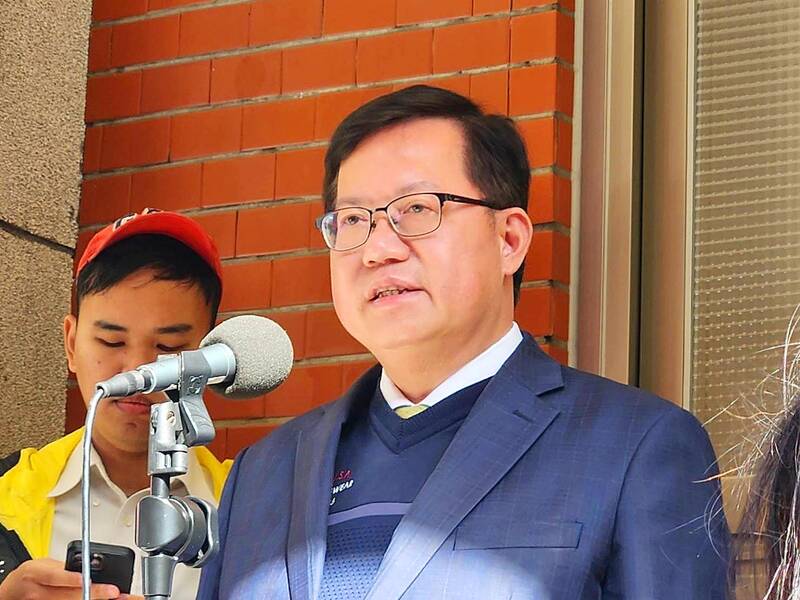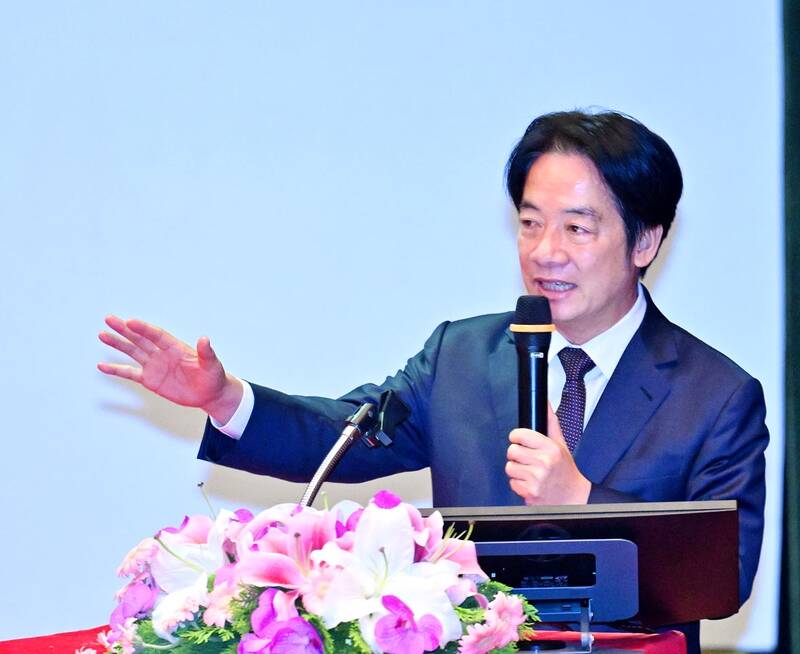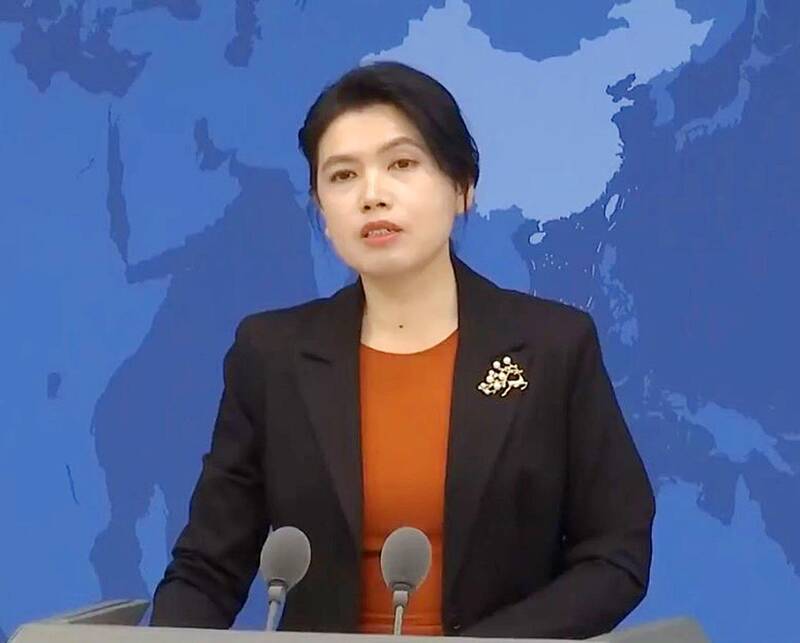By far the most jarring of the new appointments for the incoming administration is that of Cheng Wen-tsan (鄭文燦) to head the Straits Exchange Foundation (SEF). That is a huge demotion for one of the most powerful figures in the Democratic Progressive Party (DPP).
Cheng has one of the most impressive resumes in the party. He was very active during the Wild Lily Movement and his generation is now the one taking power.
He has served in many of the requisite government, party and elected positions to build out a solid political profile. Elected as mayor of Taoyuan as part of the “green wave” of 2014, he was one of the few DPP mayors to win re-election in the Chinese Nationalist Party (KMT) “Han wave” landslide in 2018 with the highest voter turnout for a winning mayor at that time in Taoyuan’s history.

Photo: Hsieh Chun-lin, Taipei Times
When Su Tseng-chang stepped down as premier in January of last year, Cheng was high on everyone’s list of potential replacements. If Cheng had not been caught up the thesis craze of 2022 and had his master’s degree revoked, he quite likely would be the premier now.
Instead, he was appointed vice premier — or Vice President of the Executive Yuan as it is formally known — and since he was serving under a former vice president, this was still a respectable and face-giving position.
He also, like president-elect William Lai (賴清德) and current Control Yuan President Chen Chu (陳菊), has his own subfaction of the DPP’s most powerful faction, New Tide. By almost all political standards he is more of a heavyweight that the incoming premier Cho Jung-tai (卓榮泰) and arguably better than incoming foreign minister Lin Chia-lung (林佳龍). Cheng towers over everyone else in the cabinet.

Photo: Liu Hsin-de, Taipei Times
Yet, he got the lowly position of head of the SEF, which serves to carry out instructions given by the Mainland Affairs Council (MAC). The MAC is in charge of setting out policies related to China, but to get around the mutual diplomatic non-recognition, the actual exchanges between the two sides are conducted by the officially private — but government-financed — SEF.
That was the way it used to work. Ever since the election of Tsai Ing-wen (蔡英文) as president in 2016, the Chinese side cut off all contact demanding that the Tsai administration accept the so-called “1992 consensus.” Essentially, the SEF has been twiddling their fingers for the last eight years with nothing to do.
The local press has been running stories using terms that are equivalent to “consigned to the trash heap of history” and that Cheng is being played like a “marionette.” This is possible, and it seems to be the most popular theory, but there is another possibility.

Photo: Chen Yu-fu, Taipei Times
IS LAI PUTTING CHENG DOWN?
It is possible that Lai is playing a political game and sidelining a potential rival or is punishing Cheng for past grievances. Despite his placid demeanor, Lai did not get to the pinnacle of power in both the DPP and in May the nation, without knowing how to wield a political knife.
Most famously Lai launched a stealthy last-minute primary challenge to Tsai in 2019, leaving her virtually no time to respond and in spite having promised her that he would not do so. Tsai and her supporters managed to rig the rules to get the primary date pushed back, and pushed back yet again, to give herself time to respond. Tsai is just as wily of a political knife-wielder as Lai, and in this case proved she was the better of the two and won in spite of many predicting Lai would.
That incident fractured the party badly in the run up to an election and reluctantly Tsai took Lai on as the vice presidential candidate, but she made him pay for it by keeping Lai in the doghouse for the first year or two and relegated him to glorified ribbon-cutter. It is unclear if their relationship has softened or not since, but at the very least in the interests of the future of the party eventually Tsai gave Lai more dignified tasks that would burnish his reputation for the election this January.
At least one well-known local political commentator thinks that Lai is punishing Cheng for having been too close to Tsai and the Ing faction named after her in the past. This may be partially true and they had a strong personal relationship, but Cheng is a member of the same New Tide faction as Lai, so this seems a stretch, though still possible.
Another possibility is that Lai wants to diminish Cheng and his subfaction within New Tide to give more power to his own Lai faction. Power and influence tend to go those with high office, and Lai is about to take over the most powerful position in the land.
Yet Lai publicly announced he was resigning from New Tide after winning the election. If that means anything in practice, it is hard to say, and he did get a large number of his people appointed in the new government, so this theory is also possible, but hardly a slam dunk.
Other possibilities include Lai simply does not like him, or thinks he is damaged goods following the thesis scandal.
IS LAI SIGNALLING TO CHINA?
The problem with all those theories is that Cheng took the job. Cheng has one of the strongest political records in the country and knew full well how this was going to look like a huge demotion in the public eye. Why did he not just say ‘no’?
I think there is high possibility that Lai wanted a powerful figure who has the ear of people at the highest levels of government as his envoy to China. It sends a strong message to China that the incoming Lai administration is serious about restarting talks. Cheng is also widely perceived as a moderate within the party on China.
Politically this could be a gamble for Cheng, but there is a potentially large upside. If talks restart, he will be face most associated with them. If the talks fail, he will still have been seen as having made the effort and get plenty of press for it.
If the talks succeed and something positive comes out of them, he will be the hero of the day. Either way, Cheng would be burnishing his foreign policy credentials for a future political run. In a best-case scenario, he could come out looking like a statesman and wise for taking the job.
Lai has spoken on the campaign and at length about his desire to restart talks and even said he hoped to meet General Secretary Xi Jinping (習近平) over beef noodles and bubble tea. In spite of his promising continuity with the Tsai administration, including on sovereignty, it is possible that he is very serious about this, and his appointment of Cheng indicates that.
In his victory speech in January, Lai said “Maintaining cross-strait peace and stability is an important mission for a serving president. I will, in accordance with our constitutional system of government, will be neither obsequious nor obstructionist in preserving the status quo, on the premise of equality and dignity will use communication in place of blockade, will use dialogue in place of confrontation. (I have) confidence that exchange and cooperation with China can be opened up, with the goal of advancing the well-being of the people on both sides of the Strait to achieve peace and common glory.”
On April 24, China’s Taiwan Affairs Office (TAO) spokesperson Zhu Fenglian (朱鳳蓮) commented on Cheng’s appointment by noting that no matter who heads the SEF, the decision to resume dialogue depends on conceding and accepting the “1992 Consensus” based on the “one China principle” and to concede that both sides of the Strait “belong to one nation and one people.”
Zhu was simply reciting the party line, and she has no decision-making power of her own. There was little else she could have said.
There have been some intriguing hints that there could be movement on at least some issues between the two sides in the Lai administration. Not much concrete so far, but if correct about Lai’s signaling, he is open to trying to make something work.
Watch this space.
Donovan’s Deep Dives is a regular column by Courtney Donovan Smith (石東文) who writes in-depth analysis on everything about Taiwan’s political scene and geopolitics. Donovan is also the central Taiwan correspondent at ICRT FM100 Radio News, co-publisher of Compass Magazine, co-founder Taiwan Report (report.tw) and former chair of the Taichung American Chamber of Commerce. Follow him on X: @donovan_smith.

There is a Chinese Communist Party (CCP) plot to put millions at the mercy of the CCP using just released AI technology. This isn’t being overly dramatic. The speed at which AI is improving is exponential as AI improves itself, and we are unprepared for this because we have never experienced anything like this before. For example, a few months ago music videos made on home computers began appearing with AI-generated people and scenes in them that were pretty impressive, but the people would sprout extra arms and fingers, food would inexplicably fly off plates into mouths and text on

On the final approach to Lanshan Workstation (嵐山工作站), logging trains crossed one last gully over a dramatic double bridge, taking the left line to enter the locomotive shed or the right line to continue straight through, heading deeper into the Central Mountains. Today, hikers have to scramble down a steep slope into this gully and pass underneath the rails, still hanging eerily in the air even after the bridge’s supports collapsed long ago. It is the final — but not the most dangerous — challenge of a tough two-day hike in. Back when logging was still underway, it was a quick,

From censoring “poisonous books” to banning “poisonous languages,” the Chinese Nationalist Party (KMT) tried hard to stamp out anything that might conflict with its agenda during its almost 40 years of martial law. To mark 228 Peace Memorial Day, which commemorates the anti-government uprising in 1947, which was violently suppressed, I visited two exhibitions detailing censorship in Taiwan: “Silenced Pages” (禁書時代) at the National 228 Memorial Museum and “Mandarin Monopoly?!” (請說國語) at the National Human Rights Museum. In both cases, the authorities framed their targets as “evils that would threaten social mores, national stability and their anti-communist cause, justifying their actions

In the run-up to World War II, Admiral Wilhelm Canaris, head of Abwehr, Nazi Germany’s military intelligence service, began to fear that Hitler would launch a war Germany could not win. Deeply disappointed by the sell-out of the Munich Agreement in 1938, Canaris conducted several clandestine operations that were aimed at getting the UK to wake up, invest in defense and actively support the nations Hitler planned to invade. For example, the “Dutch war scare” of January 1939 saw fake intelligence leaked to the British that suggested that Germany was planning to invade the Netherlands in February and acquire airfields